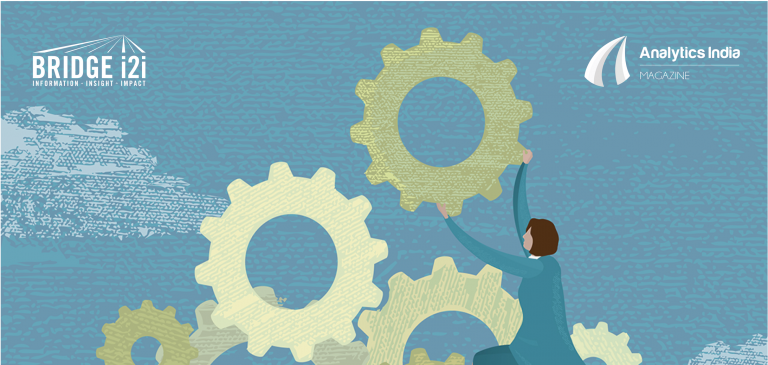In 2001, the entire Knowledge Process Outsourcing (KPO) industry in India had only 9,000 professionals who generated approximately USD 260 million in revenue; however, this industry had already grown to approximately 75,000 professionals by 2007. The Indian KPO sector barely grew during the great recession of 2008-09 but it is likely to have 166,000 professionals by the end of 2014 who will generate annual revenue of approximately USD 6.21 billion. So, overall, during 2001-2014, this sector has grown approximately 24 times, i.e., at a compound annual growth rate (CAGR) of 27% – 28%. Finally, during the past 13 years, India has generated approximately 70% of the revenue of the global KPO industry and our models show that India’s preeminence in this field will continue until 2020, and perhaps beyond.
Going forward, our estimates show that overall the KPO outsourcing industry in India is expected to grow from 166,000 professionals and USD 6.21 billion in revenue in 2014 to approximately 310,000 professionals and USD 12.12 billion in 2020, which would imply 12% CAGR approximately for the next six years. Although most sub-sectors are expected to grow around 12% CAGR, the sector related to data management, data mining, and analytics is expected to grow from 33,000 professionals and USD 1.23 billion in revenue in 2014 to 87,000 professionals and USD 3.3 billion in revenue in 2020, thereby implying 18% CAGR. Clearly, although an annual growth rate of 18% for the next six years is nothing to sneeze at, it is a far cry from the hype that has been created about such data analytics outsourcing services from India, especially because of the following myths related to this sector:
Myth Number 1 – Shortage of Data Scientists in the U.S can be fulfilled by those in India: According to U.S Commerce Department and other published research, the United States actually produces more than 440,000 graduates and post-graduates every year in STEM (Science, Technology, Engineering, and Math) areas and there are 7.6 million professionals working in these areas. However, as per the McKinsey Global Institute, most of these professionals do not have the experience or expertise to be Data Scientists and it takes several years to develop these intrinsic capabilities. If the United States is going to have a shortage of Data Scientists because its professionals do not have the appropriate math/computer science skills or the appropriate domain expertise then this problem will be even more exacerbated in India.
Myth Number 2 – Graduates in India can be converted into Data Scientists by providing 3-6 months of training: Many firms in India, especially those that are “pure play” firms, have started training their employees by providing them a three to six months course related to analytics and Big Data Science. Although such training is laudable and will certainly help in developing this nascent area, it is a far cry from calling such professionals Big Data Scientists or even experienced analysts. In fact, it is far worse when these niche firms hype up their training departments and call them “Universities.” Not only is this a travesty of the Indian education system, it is patently illegal since accreditation from an appropriate government body is compulsory for all universities except those created by the Indian Parliament.
Myth Number 3 – Data Management and Analytics Professionals from India can be charged at almost the same rates as those in the U.S: Most analytics professionals in India lack mature domain expertise and they have little experience in high-end statistical techniques (e.g., Bayesian), in artificial intelligence algorithms or in Python language. Hence, at least for the near future, such professionals will be only relegated to doing lower end work, thereby, earning the same kinds of salaries as those in other areas of KPO. Keeping this in view, the best hope for the Indian outsourcing industry is that the managers at the clients’ end in the U.S. or Europe partition their business problems into sub-problems and the give these sub-problems to professionals in India, thereby, saving 70% in costs for solving these sub-problems.
Myth Number 4 – Attrition within the Analytics Outsourcing Industry in India is low: Like other sub-sectors of KPO, attrition in data analytics is approximately 30%, which implies that most data analytics firms have become “hiring and training machines.” Reasons for higher attrition include late-night working schedule, boredom with low-end work, and the continued shortage of such professionals in India. Such attrition and “job hopping” further reduces the acquisition of domain expertise because whenever professionals leave a firm to join another, they end up wasting 3-4 months of their career.
Myth Number 5 – This time it is different with Data Analytics Outsourcing: In fact, exactly the opposite is true. Most analytics firms in India are currently following the old beaten path of FTE (Full-Time Equivalent) pricing and providing these professionals in a staff augmentation mode. Furthermore, like other sectors of KPO, because there are very few barriers to entry, there are already more than 180 organizations, which are either pure-play analytics firms or analytics divisions of larger companies. Clearly, small and nimble players can keep their overheads (e.g., Sales, General and Administration expenses) low, thereby, undercutting others and ensuring a race to the bottom with respect to both prices and profit margins. Hence, just like the other sub-sectors of KPO, firms in the data analytics sector are already beginning to witness 20%-22% LTM–EBITDA (Earnings Before Interest, Taxes, Depreciation and Amortization for the Last Twelve Months) of their total revenue.
Myth Number 6 – By creating a few APIs or home-grown visualization software, a Data Analytics Services company can stand out: In order to differentiate themselves, several niche companies have started creating “software macros” or home-grown visualization software. However, because there are already more than 50 visualization software companies in the world, it is not clear that building home-grown visualization software would help them unless their software is really intuitive and captivating with a broad appeal. Indeed, if the Indian firms really want to differentiate themselves, they would need to develop more domain expertise among their professionals or create products or solutions.
Myth Number 7 – Valuations for Analytics Outsourcing Companies will be significantly higher than other KPO companies: Since analytics firms in India lack mature domain expertise, a comparison of such companies to Splunk or Palantir seems far-fetched; whereas, Palantir has deep domain expertise in defense, law enforcement, banking and insurance sectors, Splunk has deep expertise in “machine data”. Also, according to our estimates, since most KPO companies in India are likely to grow at approximately 12% CAGR for the next six years and their current valuation would be around 11 to 12 times LTM-EBITDA, it is hard to see how such valuation for the corresponding data analytics services firms in India would be more than 16-18 times LTM-EBITDA, especially when they are likely to grow at 18% CAGR.



















































































